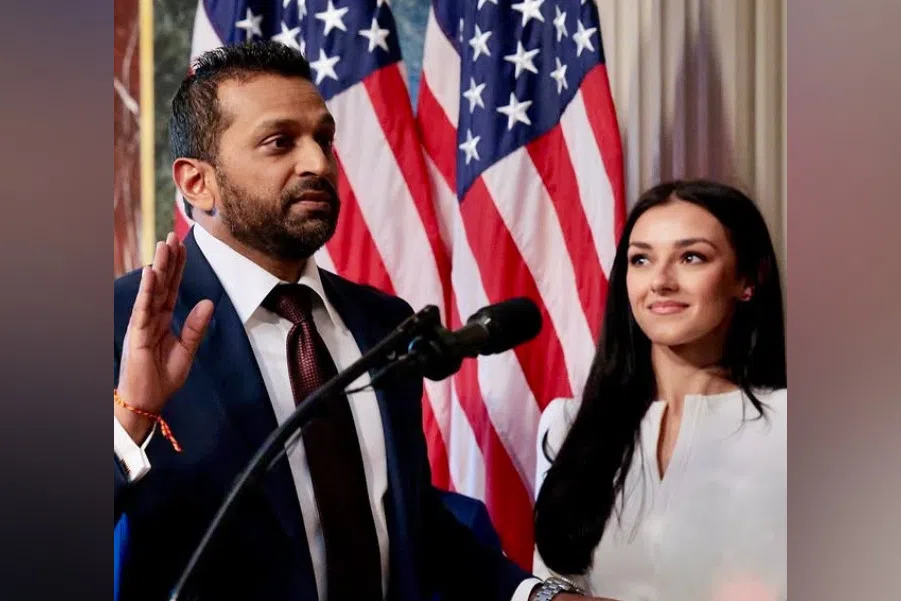FBI Director Kash Patel Under Fire: Allegations of Misusing SWAT Teams & Government Jets for Girlfriend and Personal Trips
 United States
US Politics & Government Ethics
United States
US Politics & Government Ethics

FBI Director Kash Patel faces growing scrutiny over alleged misuse of government resources. This includes deploying SWAT teams for his girlfriend, Alexis Wilkin
FBI Director Kash Patel Under Fire: Allegations of Misusing SWAT Teams & Government Jets
FBI Director Kash Patel is facing intense scrutiny and growing questions within the administration regarding his alleged extensive use of taxpayer-funded resources, particularly for the protection of his girlfriend, aspiring country singer Alexis Wilkins, and for personal travel. Critics, including current and former FBI officials, as well as some conservative commentators, are raising concerns about whether these actions exceed standard practice and ethical guidelines.
Controversial Protection Details for Girlfriend
The controversy first erupted when Ms. Wilkins, dating Director Patel for roughly three years, reportedly arrived at the National Rifle Association's annual convention in Atlanta with a specialized SWAT team from the local FBI field office. These highly trained agents, usually tasked with high-risk operations like storming barricaded buildings, were deployed on Mr. Patel's orders. However, after assessing the secured venue and Ms. Wilkins's lack of immediate danger, the agents departed early. This decision reportedly angered Mr. Patel, who allegedly reprimanded the team's commander for leaving his girlfriend without taxpayer-funded protection.
Patel's spokesperson, Ben Williamson, defends these protective measures, stating Ms. Wilkins faces "hundreds of credible death threats" linked to her relationship with the director. However, current and former FBI officials deem the use of SWAT agents for VIP protection, especially on an ad hoc basis, highly unusual. They highlight that SWAT teams lack extensive VIP protection training at the FBI Academy and question the legal protections afforded to agents in such non-standard assignments.
This incident in Atlanta is not isolated. SWAT resources have reportedly been diverted multiple times in recent months to protect Ms. Wilkins, including in Nashville, Tennessee, where she resides. In one instance, agents in Salt Lake City were reassigned to protect her at a political event shortly after working long hours following the killing of a prominent Trump ally.
Misuse of Government Jets and Personal Travel
Beyond Ms. Wilkins's security, Director Patel's use of government jets for recreational travel has also come under fire. One notable instance includes a golf trip to an exclusive resort in Scotland with friends, coordinated with extensive and expensive on-the-ground security by FBI agents and Scottish authorities. While directors must use government aircraft for secure communications, personal travel requires reimbursement at commercial ticket prices – a fraction of the actual operating cost of a private jet.
Patel's travel records show a dozen personal trips since becoming director in February, contrasting sharply with his predecessor Robert Mueller, who took only 10 reimbursable flights out of nearly 300 over four years. Other alleged personal trips include flights to Nevada (where Patel has a residence that has been targeted by a swatting attack) and a visit to a private hunting ranch in Texas. Ms. Wilkins has also accompanied Mr. Patel on at least one international trip, flying to London for a national security conference.
Growing Criticism and Context
This alleged resource misuse is drawing sharp criticism from various quarters. Christopher O’Leary, a former senior FBI agent specializing in high-risk missions, condemned Patel's actions as indicative of a "lack of leadership experience, judgment, and humility." Even conservative influencers, like Grace Chong, a Donald Trump ally, have publicly questioned the justification for Ms. Wilkins receiving bureau protection.
The revelations surface as the FBI itself faces potential deep budget cuts, with Patel having paradoxically backed a White House proposal to slash the agency's budget by US$500 million after initially requesting more funds. Spokesperson Williamson maintains that all expenses are justified for the director's and Ms. Wilkins's protection, asserting that "bad faith criticisms" will not deter the bureau from its mission. However, the internal and external grumbling highlights a significant challenge to Patel's leadership and the bureau's ethical standing.





